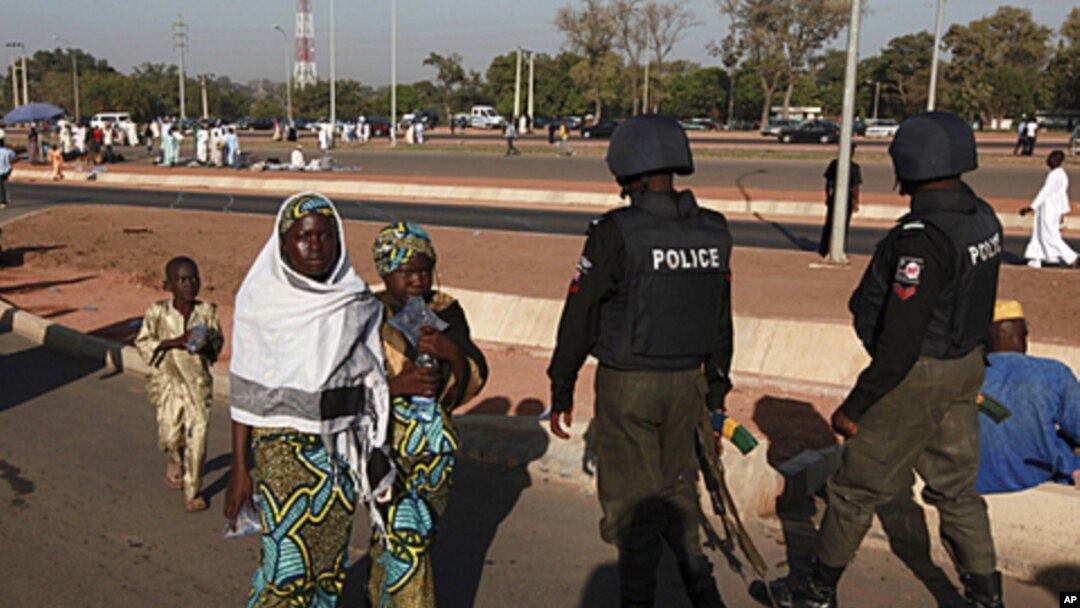Human rights advocates and Nigeria experts are calling for a careful security response to recent violence in Nigeria's north by Islamist extremists. They warn a botched reaction could lead to even more violence.
Human Rights Watch is urging Nigerian authorities to act swiftly to bring to justice those responsible for what it calls the "terrible crimes" that killed at least 100 people in the northern state of Yobe November 4.
Boko Haram
The perpetrators have been identified as a group of Islamist extremists dubbed by Nigerian authorities and the media as Boko Haram - which in Hausa roughly means "Western education is a sin."
The extremists say they want strict imposition of Sharia, or Islamic law, in northern areas. They say they will continue their violent campaign until Nigerian security forces stop persecuting their members and vulnerable civilians.
Human Rights Watch
In a statement issued this week, Human Rights Watch says Boko Haram is linked to attacks which have killed more than 425 people this year - including police officers, soldiers, community leaders, politicians, Islamic clerics, Christian pastors and church members.
But the New York-based group is also warning against abuses by Nigerian police and the military. Several hundred people were killed in a crackdown on the insurgents in 2009. Human Rights Watch says that since then, it has documented abuses that include extrajudicial executions.
William Minter, who has been closely following the developments as editor of the Africa Focus online bulletin, says Nigerian security forces must understand their conduct can also be a part of the problem.
Police abuse
"If you kill a number of people or arrest a number of people but at the same time further alienate the population so that you increase the number of recruits, you are only leading to escalation and ignoring the real structural roots of why such discontent emerges," Minter said.
Nigeria has taken legal action in response to specific cases of abuse. Earlier this year, five police officers were criminally charged in the 2009 deaths of Boko Haram leader Mohammed Yusuf and some of his followers.
But experts say the government needs to do more to address the issues of poverty and corruption that led to the rise of the extremists and local support for them. John Campbell, who has been researching and writing about Nigeria for the Council on Foreign Relations, says there is a lot of anger.
"What you have got is an extremely bloody - what shall we call it insurrection - that reflects the impoverishment of northern Nigeria," he said. "Also I think it's increased alienation from a government in Abuja which it does not think is particularly responsive to it."
Riots erupted in parts of northern Nigeria after this April's presidential election won by Goodluck Jonathan, who comes from the oil-rich south. Nigeria's southern areas have also had years of violent militancy from groups saying oil riches have been unfairly distributed.
North needs rebuilding
Paul Lubeck, a political sociologist from the University of California, Santa Cruz, and expert in northern Nigerian Islamic groups, says what northern Nigeria needs is to rebuild its industrial base, which existed until the mid-1980s, and start growing more rice.
"All of this requires a strategy for northern economic recovery that would benefit Nigeria and one that would offer youth hope. Because if the spiral continues to go downward, there will be continuous, festering insurrections, stimulated by interventions by security forces that only make things worse," said Lubeck.
Lubeck and Campbell both see a role for the United States - which has expressed concern that northern Nigeria could start resembling parts of al-Shabab-dominated Somalia. Both stress U.S. diplomacy and training could help the Jonathan administration deal with problems that a military response alone cannot solve.


